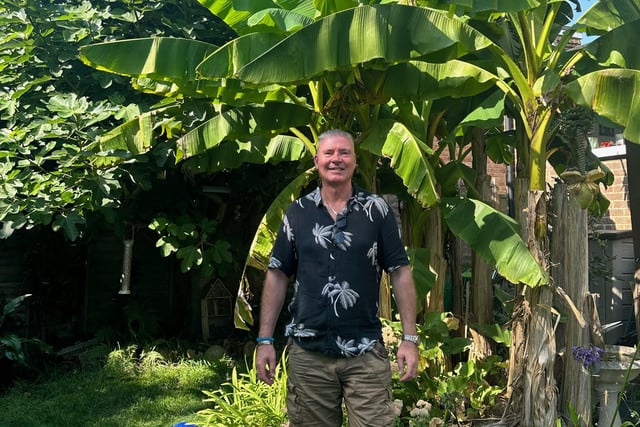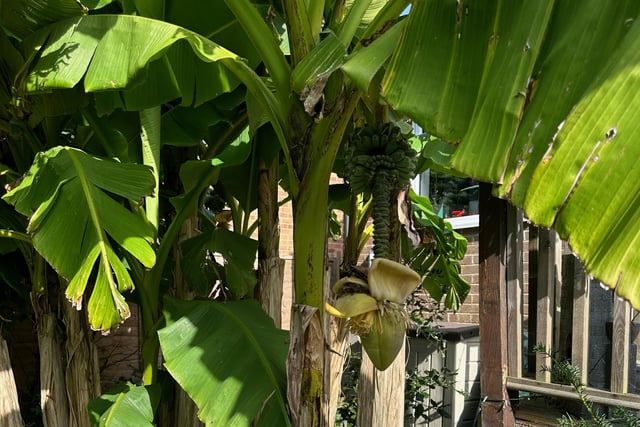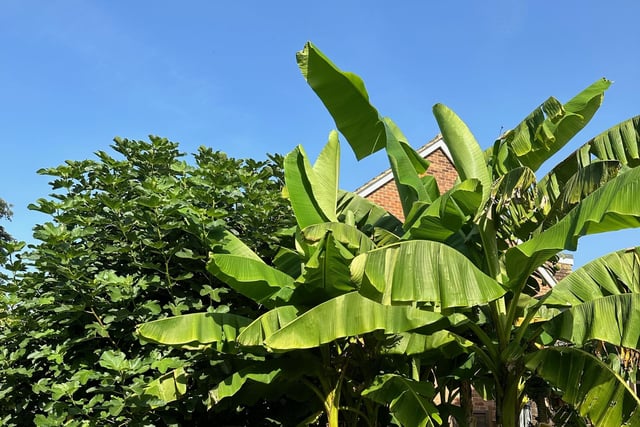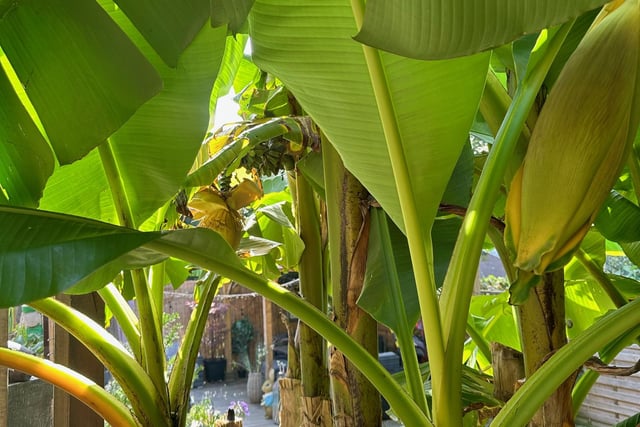Barry Trevena said he has managed to get several plants bearing the tropical fruit this summer.
He moved to his present house 11 years ago.
Barry, of Henderson Close, Hastings, said: “We have three plants with bananas this year and also a fig tree, which are all doing very well. We have lived in this house for 11 years and there were three banana plants when we moved in.
"We have had a couple that have sprouted and once they do they die and new ones start to come up. We have three this year and already new ones are starting to grow. I cut them down every winter to protect them from the frost.
“They are probably edible but are so small. We have three small plants in our garden and you never know when they are going to sprout, so we were very surprised to see so many this year.”
The Royal Horticultural Society said banana plants rarely flower or fruit in the UK, although some may do so in a heated greenhouse or conservatory.
When they do the leaves can be up to two metres long. Mature plants can grow to three metres tall or more, it said.
Musa and Ensete are the two main types of banana grown in the UK, the Royal Horticultural Society said.
Another fact about bananas is that although it appears they grow on trees, they are not actually classified as trees. They are considered herbs. They form from a rhizome, which is an underground stem. There is a main ‘trunk’ that sprouts up from underground that produces the banana cluster.
The Observer recently featured the story of the Clarence pub in Silverhill, where a banana plant in the venue’s beer garden has suddenly flowered after years of doing nothing. It is the first stage of it producing fruit.
The plant was originally grown by pub regular and keen gardener Steve Sivell on his allotment. He said: “It was being battered by the wind so I brought it to the pub garden in a sheltered spot. It has been here for five or six years, but this is the first time it has flowered.”

1. hastings banana tree 2.jpeg
Barry Trevena with his banana tree Photo: Contributed

2. hastings banana tree 6.jpeg
The banana tree in Barry Trevena's garden Photo: Contributed

3. hastings banana tree 3.jpeg
The banana tree in Barry Trevena's garden Photo: Contributed

4. hastings banana tree 1.jpeg
The banana tree in Barry Trevena's garden Photo: Contributed